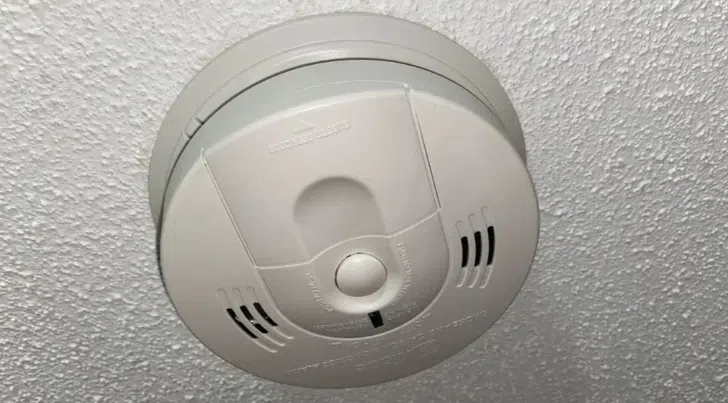
Combination smoke and carbon monoxide detector. PC: Fox 11 Online
(WTAQ-WLUK) — When you turn your clocks back one hour Sunday, it’s also a good time to make some simple safety checks around the house.
Daylight saving time ends Sunday, Nov. 3 at 2 a.m., clocks will fall back an hour to standard time.
Health officials say you can use that extra hour to check and put new batteries in carbon monoxide and smoke detectors.
Carbon monoxide alarms detect harmful gas if it leaks from furnaces and other appliances. In 2023, there were 341 emergency department visits and 35 deaths due to unintentional carbon monoxide poisoning, according to the Wisconsin Department of Health Services.
Carbon monoxide alarms should be installed in a central location outside each separate sleeping area and on every level of your home. Batteries in these alarms should be replaced at least once a year. The carbon monoxide alarm should be replaced around every five to seven years, based on the manufacturer’s instructions.
Smoke alarms are also a critical early warning tool that can help alert you to a fire in your home. According to the National Fire Protection Association, three out of every five home fire deaths occurred when smoke detectors were either not present or were not working properly. Smoke alarms should be tested monthly, and the batteries should be replaced at least once a year. The device itself should be replaced every 10 years.
If you have an emergency kit at home, this weekend is also a great time to check for expired products or items that may have been borrowed for other purposes and need to be replaced. Pay attention to the expiration dates on batteries, first aid supplies and food.
And while “falling back” means potentially an extra hour of sleep, some parents dread this time of year because it impacts sleep schedules for kids.
This can be a stressful time for parents because kids thrive on routines and one hour makes a big difference, but with a little planning a few days in advance, the sleep time change transition can be less of a headache, according to Dr. Casey Freymiller, pediatrician, UW Health Kids.
“We recommend parents do what is called ‘bedtime fading,’ which means adjusting the bedtime in 15-minute increments a few days before the time change,” said Freymiller, who is also an assistant professor of pediatrics, University of Wisconsin School of Medicine and Public Health.
In the fall, for example, if a child’s bedtime is normally 8 p.m., starting Wednesday push it back by 15 minutes. So, 8:15 p.m. on Wednesday, 8:30 p.m. on Thursday, 8:45 p.m. on Friday, and 9 p.m. on Saturday, that way when it is time for bed Sunday at 8 p.m., it feels more gradual than the abrupt one-hour change, he said.





Comments